How to Get Awesome Dietetic Experience
The competition among peers within the dietetic major is fierce! We’ve developed a guideline to help you stand-out with AWESOME dietetic experience!
Research the Field
Clinical Nutrition, Food Service and Community Nutrition may be the common areas dietitians are employed, but it is NOT the only area. The dietetics profession has significantly changed within the last fifty years! Let’s take it back to Economics 101 and the concept of supply and demand. Different demands, such as the increased need for weight loss solutions due to the rise in obesity mean an increased need for the supply of dietitians that specialize in weight loss. Telehealth is another booming industry for dietitians right now!
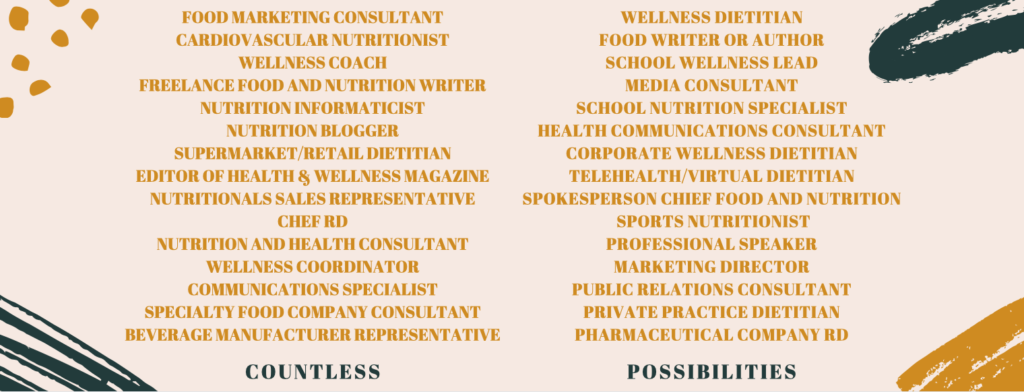
Be sure to engage yourself in the dietetics field! Know what the hot topics are and stay abreast of current research and media trends. A large part of the dietetic field involves communications. You should know how to translate evidenced-based research into layman’s terms for the public. A few ways to stay current is with the American Dietetic Association’s Daily News. After you sign in to eatright.org, go to ADA Member Updates and sign up for the Daily News. You will get daily emails about what is going on with food and nutrition in the media and with new research. You can learn so much just by reading this everyday! This will help you to gain AWESOME dietetic experience!
Check out our Q&A with Deanna Wolfe, MS, RDN – Deanna created her own consulting Business
Making Connections Is Key
Let’s say it again, MAKE CONNECTIONS. And once more for the people in the back, MAKE CONNECTIONS. I cannot emphasize this enough! Dietetics is such a small world especially when you narrow down your niche. Dietitians truly want to help you, they’ve been in your shoes and know how hard and stressful this time can be! But to be helped you need to put yourself out there! Think of it in terms of wishes, you can wish all you want but there is no magic genie who is going to make that wish come true. Be your own magic genie and go make that wish come true!
The internet and social media have made it ridiculously easy to reach out to registered dietitians for guidance. It sounds intimidating, but it is not as hard as it seems. Networking is simply communicating with a purpose. Make connections in the classroom, go to your professor’s office hours, get to know them. More than likely they will know at least one dietitian they can connect you with. Make in-person connections with dietitians at professional meetings and conferences. If there’s a dietitian you admire email them and introduce yourself. Ask them about how they got into the field, if they have any tips for #RD2BE’s and if they take interns or assistants. Always be on the lookout for growth opportunities that can help you gain AWESOME dietetic experience!
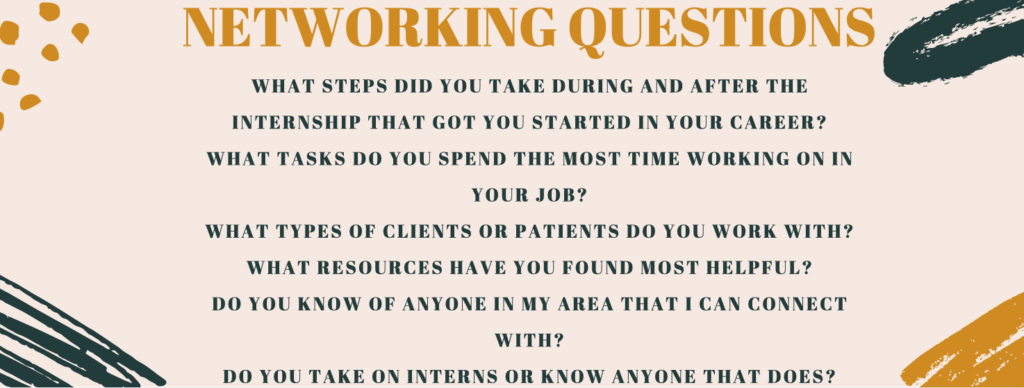
Find a mentor
Having a mentor was the most beneficial aspect of my dietetics journey so far. My first mentor was Julie Burns, MS, RD, CCN a Chicago-based dietitian and owner of Sportfuel, Inc. (an integrative sports nutrition and wellness practice).
Our mentor-mentee relationship was more valuable to me than any traditional dietetics student job or any course in school. Julie provided honest and constructive feed-back, helped me develop self-awareness, challenged me to grow beyond my perceived limitations, connected me with the movers and shakers in nutrition, motivated me to join professional organizations, and above all, she was easy to communicate with. I could ask her any question I had about the real world, because she was in it.
Since the mentorship is between a mentor and a mentee, it is equally important to be a good mentee in order to have a successful experience. Here are some essential ways to foster a meaningful relationship:
- Bring something to the table. Your mentor may have a lot of experience and valuable advice, but give your skills and time to them too. Offer to take on small projects or teach them your tech-savvy ways. Pass along an interesting article or recommend a book. The mentorship is mutually beneficial when the mentor believes he or she can learn from you and wants to invest more in your relationship.
- Be respectful. The key to any great mentorship is respect. Make sure to show up for scheduled meetings, listen carefully, take notes and make sure you always express your appreciation. Above all, be willing to take the mentor’s advice. Mentors will be encouraging, but they will also challenge you because they know this will benefit you, so be open to feedback.
- Ask a lot of questions, but have answers too. Your mentor will be a wealth of information, but don’t expect him or her to tell you exactly what to do to be successful in your career. Give this some thought on your own and bounce your ideas off of your mentor.
- Remember, this mentorship is a two-way street. Know what your goals for the mentorship are and communicate your needs, desires and objectives with your mentor.
Check out the Academy’s Mentoring Resources!
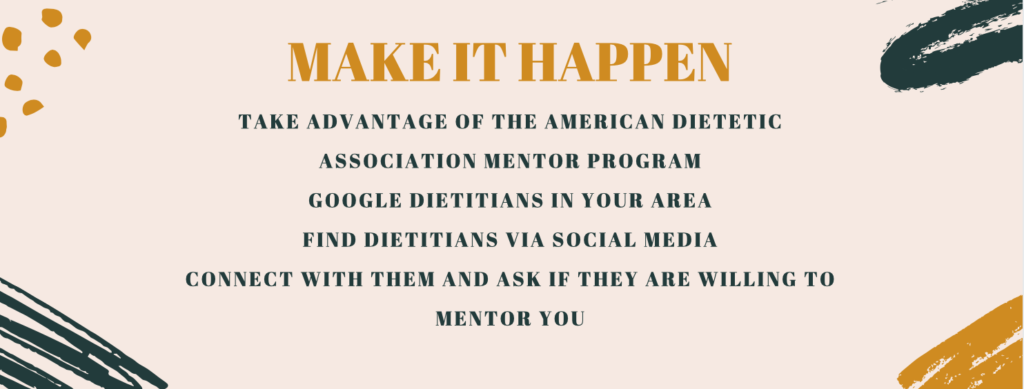
Join a Local Dietetics Practice Group
Joining your local dietetic association or a dietetic practice group is another effective avenue for networking with RDs and even other students. It also shows involvement in profession—what selection committee doesn’t like that?
To have AWESOME dietetic experience you must seek out opportunities! Volunteer, network, attend meetings or take on small projects. If your state doesn’t have much opportunity for students, ask how you can change that! Dietetic association board members are leaders that you should get to know. Reach out to them immediately! Involvement with this group early on will allow you to create a foundation of experience that you can use to prove you are devoted to the profession. You will inspire other students to follow your lead and before you know it, you have cultivated a passionate and enthused group of students to promote and advance the profession in the right direction! Do you see why this is so important? Hey, it looks like you have AWESOME dietetic experience in your application too.
Check out the Academy’s DPG frequently asked questions!
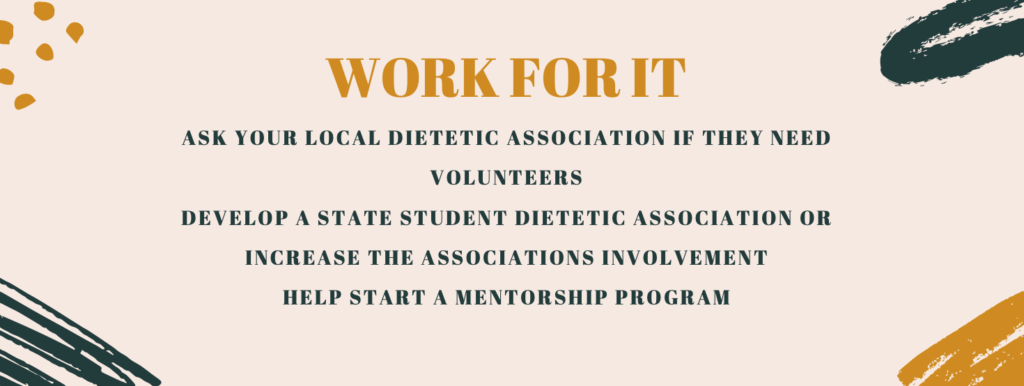
Create Leadership Opportunities
Why is leadership essential to the application? Well, time and time again, directors are stating this is what they look for in an applicant. It is plastered all over their websites, requested in the application letter, and often comes up in an interview. A career counselor once advised me that if you are going to put down that you are in an organization, you should only list it if you had a position with responsibility, as opposed to just a membership. This advice really stuck with me. Most selection committees would agree that being a leader in the field of dietetics is important, since it is the leaders that can impact the field in a positive way.
Also, note that there are about 226 didactic programs in dietetics (DPDs). Let’s assume half of them have student nutrition clubs. Let’s again assume that there are 5 executive board members. This is about 565 applicants that will have nutrition club leader- ship on their application. While this is impressive for any applicant, consider how you can be even more competitive by showing both leadership AND entrepreneurship. You can do it! In order to stand out you have to have AWESOME dietetic experience!
Check out what 6 DI Directors said about getting matched to their program!
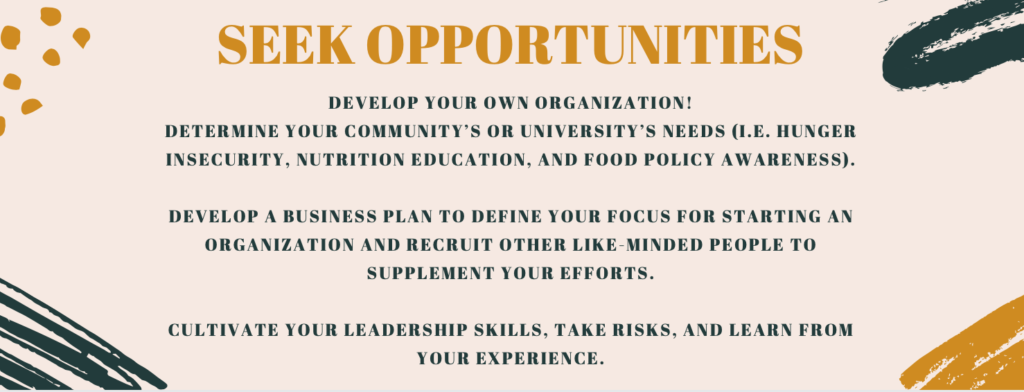
Have a wide variety of experiences
If you ask any dietetics student about what it takes to be more competitive with their internship applications you may hear, “Start volunteering soon and often!” Then, he or she will emphasize that you should get as many experiences as you can before you are in the process of applying. Your experience says a lot about your interests as well as your personality traits. Be proactive about gaining experiences by taking the initiative. Show that you have the ability to juggle multiple things at once. A great example is holding a part-time job during the semester. You also want to convey your willingness to learn new skills and show your enthusiasm for learning. Take on a position that may be extra challenging. As directors review your experiences, they will notice qualities like professionalism, multitasking, leadership, and solid communication (just to name a few).
Your experiences are what you will use to show that you have the skills to excel in the internship. If you can’t find good experiences offered through your school or within your community, start a new club or work with an RD that can be your mentor and provide invaluable one-on-one experience. It shows that you are a go-getter and are not afraid to take initiative!
During the internship, each rotation may be very different from the others. Racking up exposure in a lot of different areas will make your internship year less intimidating. Getting experience in basic clinical, food service, and community areas are crucial since these are required rotations for every DI. Once you’ve done that, expand to more specialized areas like research, business, entrepreneurship, sports nutrition, pediatrics, or communications. Not only will you have your bases covered with “typical” student positions, you can bolster your application with impressive add- ons that allow you to rise above the crowd.
How exactly are you supposed to go about finding these impressive add-ons? Let me be the first to tell you that Google can only take you so far! As dietetics students, we all crave opportunities to prove ourselves in the professional world. However, you must be willing to take some risks. I want to let you in on my own personal secret called “making the ask”. Here’s how it works. If you haven’t already spent some time on the Internet researching companies, hospitals, professional organizations, dietitians in private practice, etc., then it’s time you got started. First, do the obvious. Check and see if they offer established internships or volunteer experiences. If they don’t, make the ask! If you don’t ask, your answer is always NO. To gain AWESOME dietetic experience you should ALWAYS MAKE THE ASK.
Click here to learn how to gain more nutrition experience!
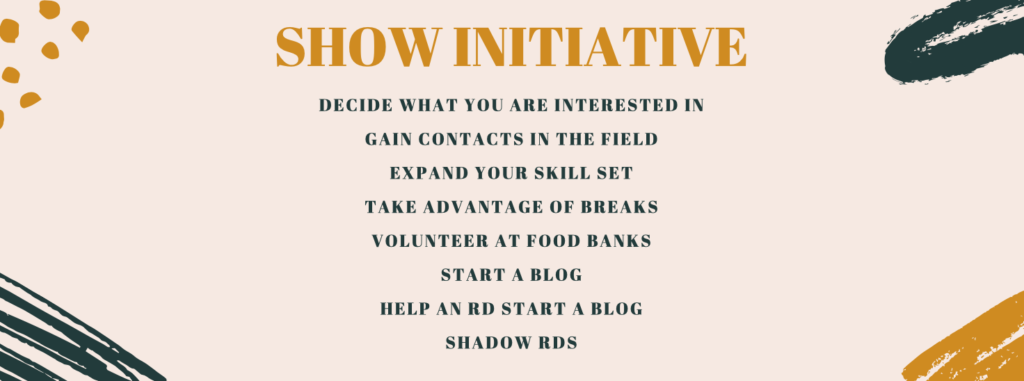
Dietetics is a profession that is capable of transforming into a passion if you know what you want and you go for it. The paths that we can take to achieve a lifetime of fulfillment are boundless, so long as we listen to ourselves and hone in on what it is that we want to achieve.
Remember, only YOU have the power to make your dreams come true. Get out there and gain AWESOME dietetic experience! You got this!
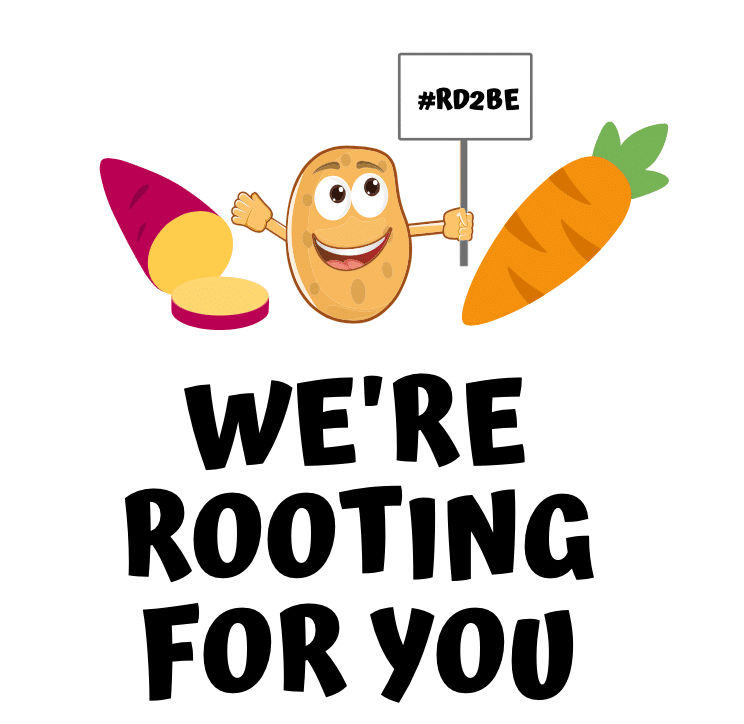
Download our E-book for information on how to be an AWESOME dietetics student



